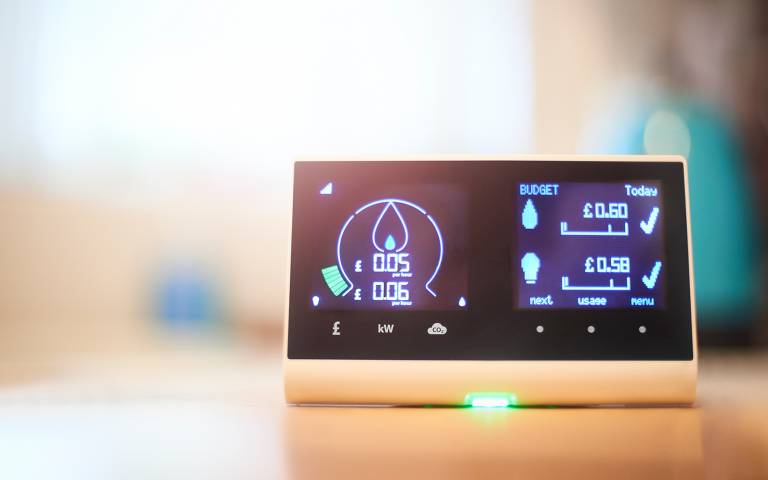Ground-breaking energy dataset enabling new research insights into big energy questions
23 November 2021
Newly available third edition of the Smart Energy Research Lab (SERL) dataset could be a hugely useful resource for learning more about how we use energy in our homes.

How has COVID impacted energy use? Can smart meters tell us if a building is energy efficient? Can we use data to make recommendations for energy efficiency improvements to a home? Can we create a virtual Energy Performance Certificate (EPC)? Can we identify homes in fuel poverty? These are all questions that the Smart Energy Research Lab (SERL) data is being applied to.
Energy data breakthrough
For the first time, accredited UK academic researchers can apply to access half-hourly and daily energy data information from over 13,000 GB households via a Secure Lab environment thanks to the EPSRC-funded Smart Energy Research Lab (SERL). The dataset could be a game changer for learning more about how we use energy in our homes, and how we can make the UK’s energy use greener, more efficient, and more affordable.
It is the first-time energy data with this level of detail and on this scale has been available to UK academics. Up until now researchers have been working with aggregate annual totals, or half hourly data with little or no contextual data - available sometimes 1-2 years after the data is used.
The SERL consortium of seven UK universities and the Energy Saving Trust have been working since 2017 to navigate the complex and quickly evolving landscape of smart meter data to build a technical and data governance infrastructure that allows researchers to access data that could usher in a new generation of energy research.
What’s in the dataset?
The newly available third edition of the SERL dataset now contains the full cohort of 13,000 GB households recruited between 2019 and 2021. The daily and half-hourly domestic gas and electricity consumption data is accompanied by 20 different weather variables; Energy Performance Certificate data (where available) and demographic and building information on the households taken from the contextual survey participants were asked to complete when agreeing to take part in the project.
All SERL data is subject to strict data governance in line with the Smart Energy Code (SEC) and the General Data Protection Regulation (GDPR). Participants give informed consent when joining the project and can withdraw at any time. The 3rd edition release is now available to accredited researchers to use in their research, subject to application to and approval by the SERL Data Governance Board.
The research programme
SERL has its own funded research programme comprising eight projects across the consortium partners. The projects look at a range of topics including thermal comfort; improving Energy Performance Certificates (EPCs); and habitual energy consumption. One project that looks at the short and long-term impact of the Covid-19 lockdown on domestic energy use is close to reporting its first findings. The work illustrates the need for quick and accurate access to energy data to tackle emerging issues.
An annual report giving headline statistics and case studies from the research programme will be launched in 2022 which will complement existing UK energy statistics.
The number of projects using SERL from outside the funded programme is growing, and the SERL team are excited by what new research it can enable and what insights can be offered into the UK’s energy consumption. All projects using SERL are approved by an independent Data Governance Board (DGB) who assess the ethical impact and academic value of the research as well as, crucially, whether the project will be in the public interest.
Addressing energy challenges
Simon Elam, SERL Director, Principal Research Associate said:
“The release of this new edition of the SERL dataset is a major milestone in the project's work. We're delighted that daily and half-hourly energy consumption data from the full cohort of over 13,000 GB homes is now available to accredited researchers. We hope that the data will now be used on a wide range of public-good projects, giving previously impossible insights into domestic energy demand, and helping address some of the big energy challenges we face as a society.”
Tadj Oreszczyn, SERL PI and Professor of Energy and Environment said:
“As the UK enters a period of large and fast transition in energy use, affecting the way in which millions use energy in their homes, it is essential that we understand quickly and accurately what happens to our energy use during this transition. SERL is a key tool for helping us to understand what is happening in real homes, with much more detail and much more quickly than was possible before.”
For more information and to learn how to access the data visit: https://serl.ac.uk/
 Close
Close

